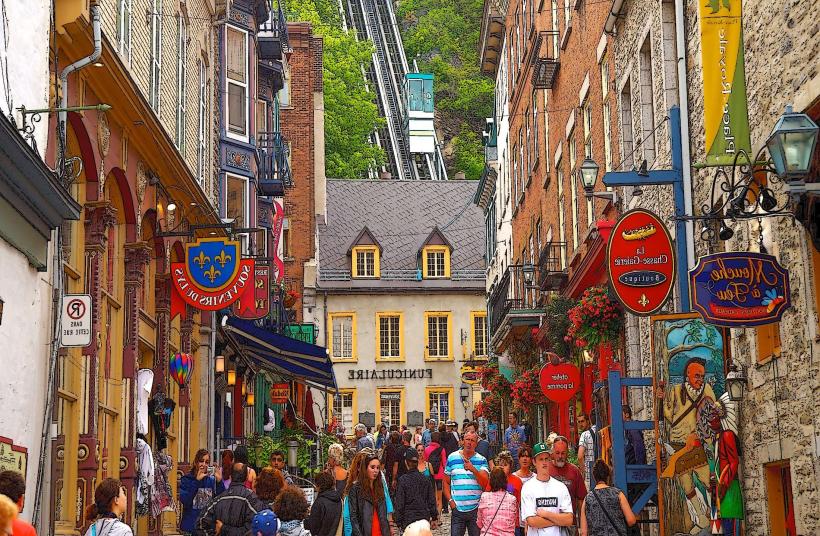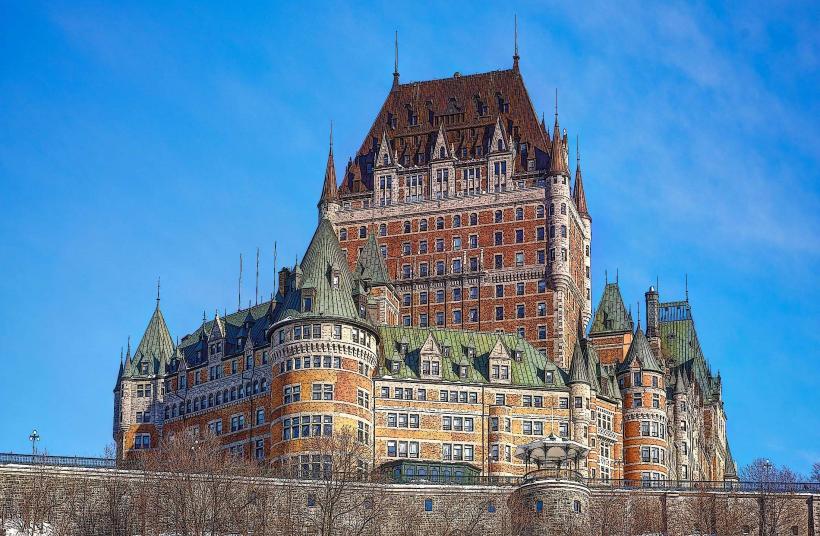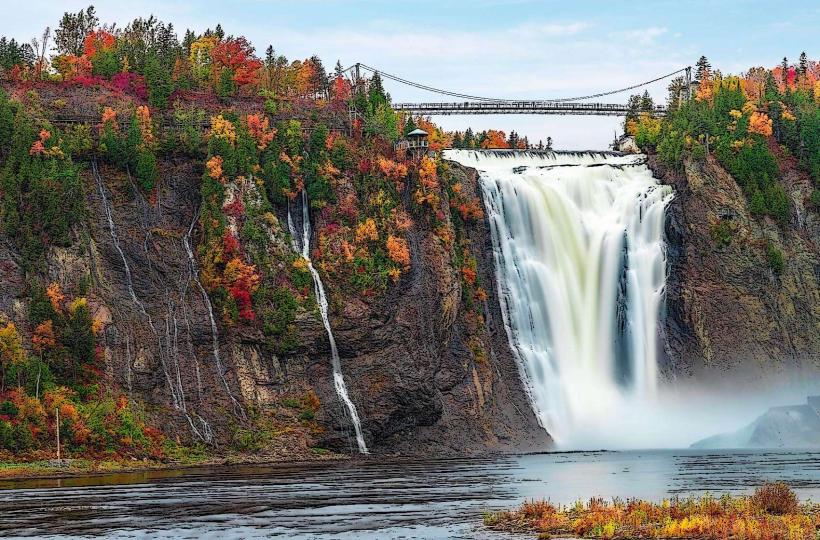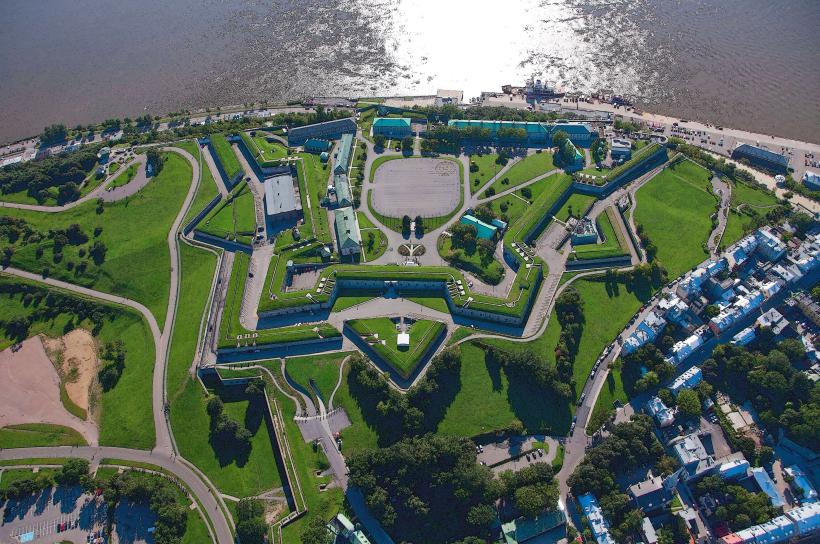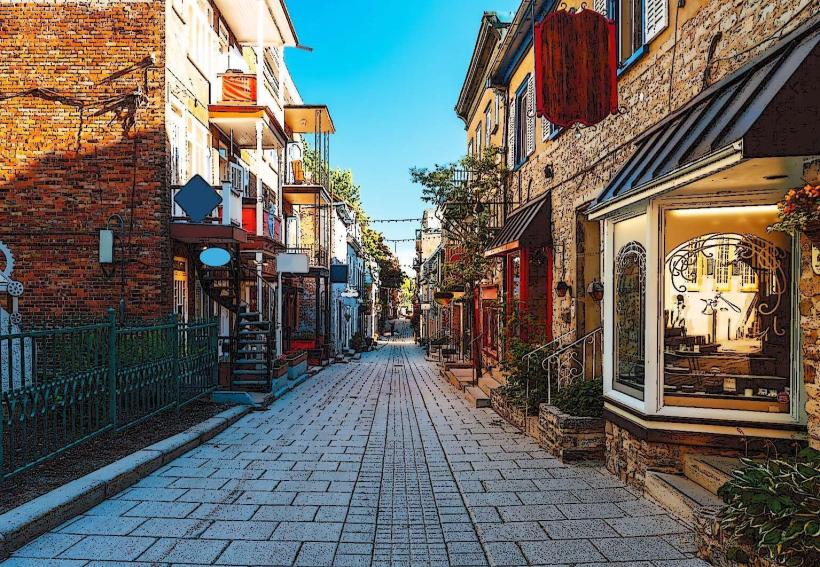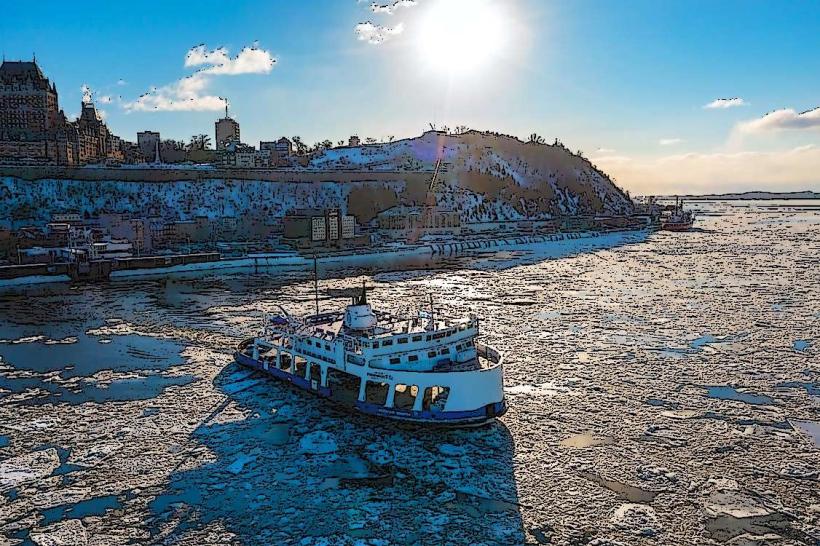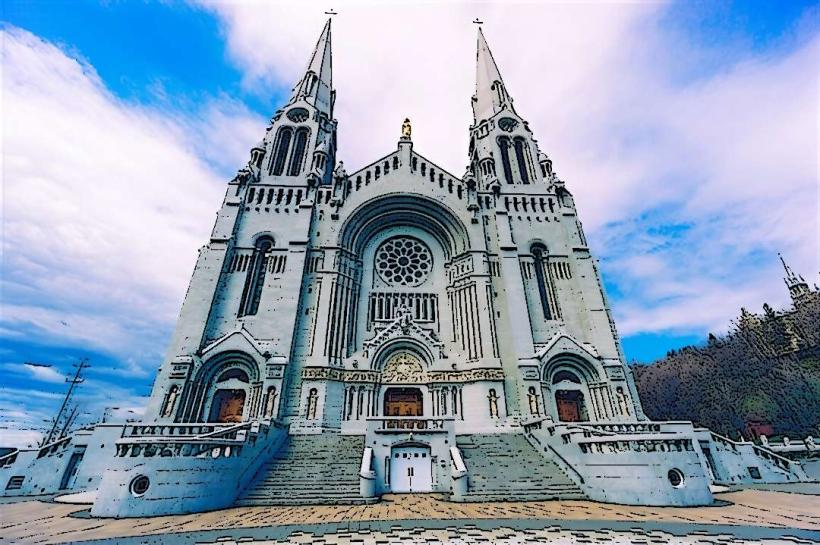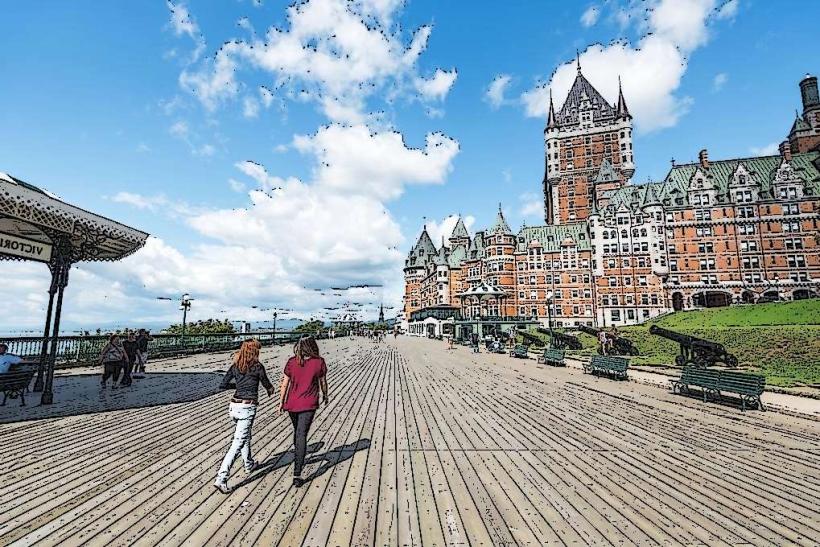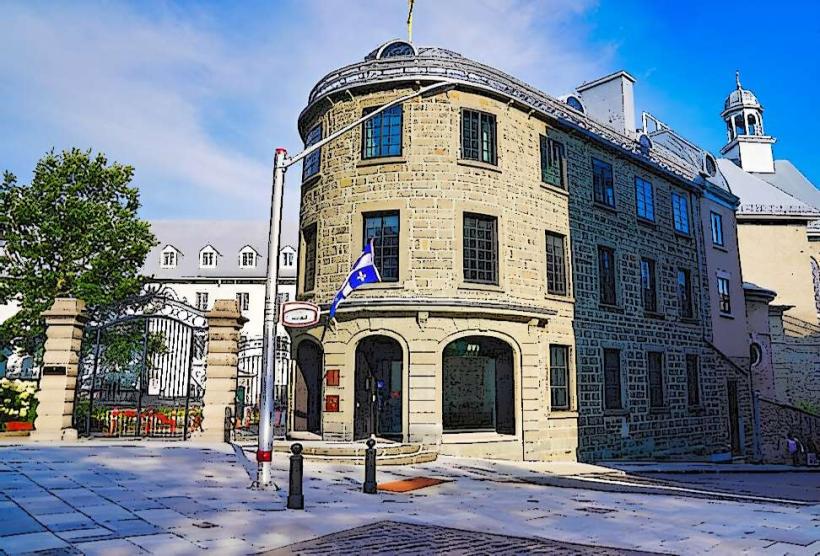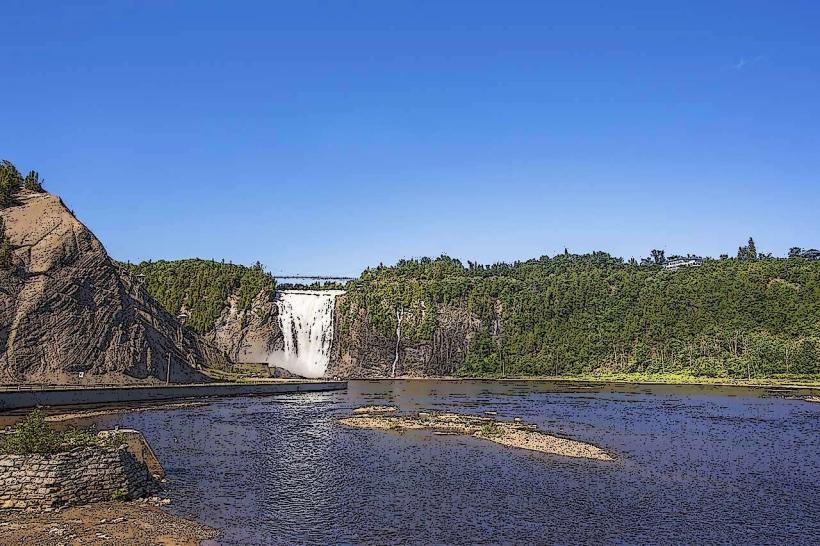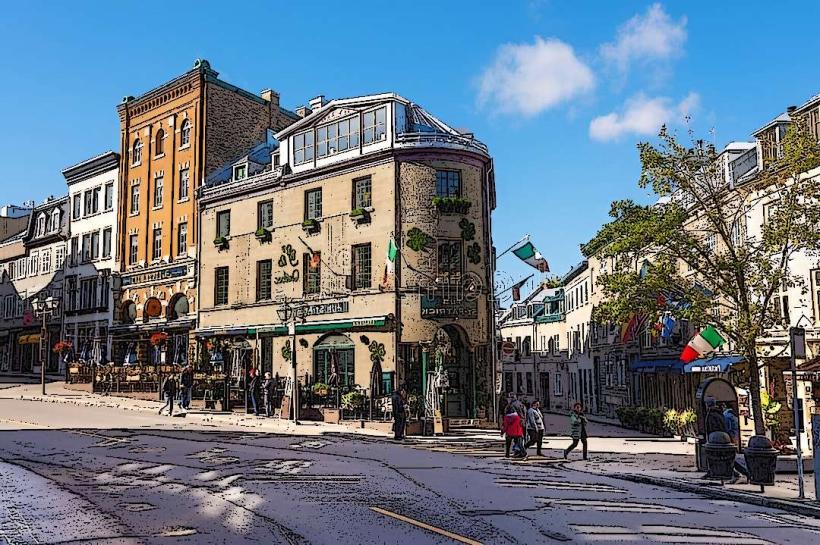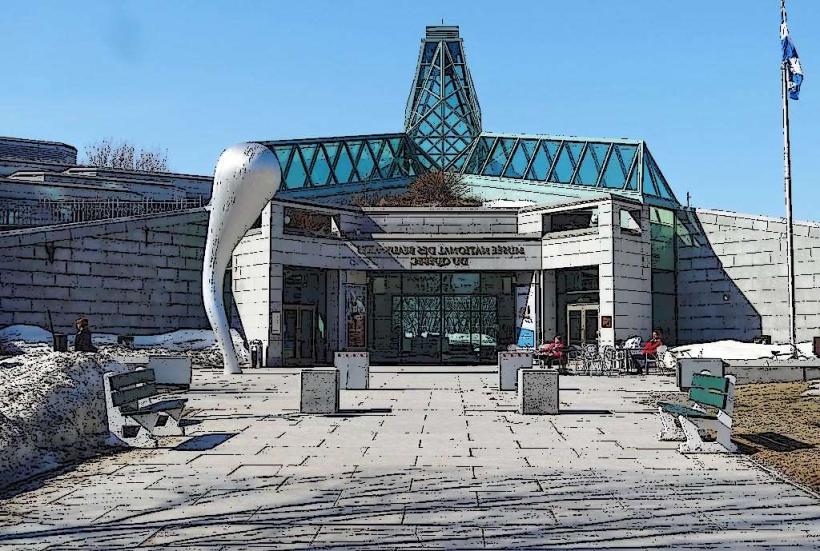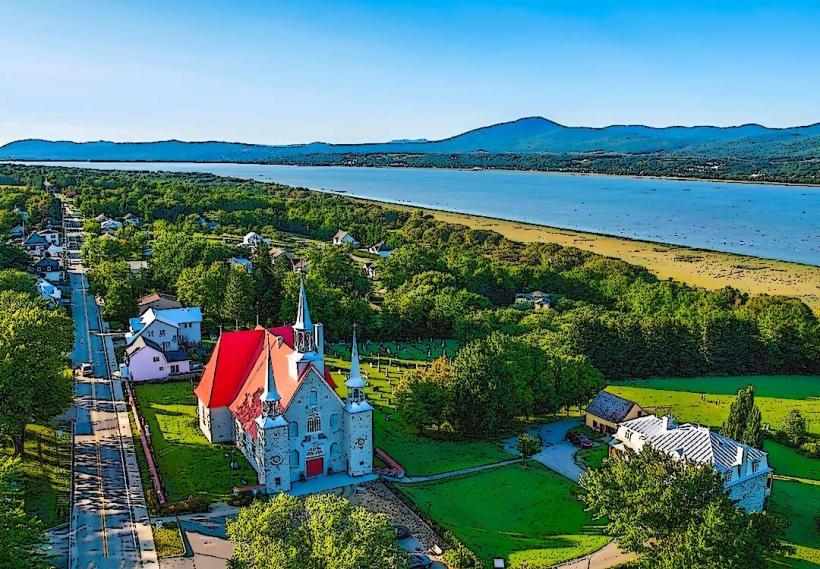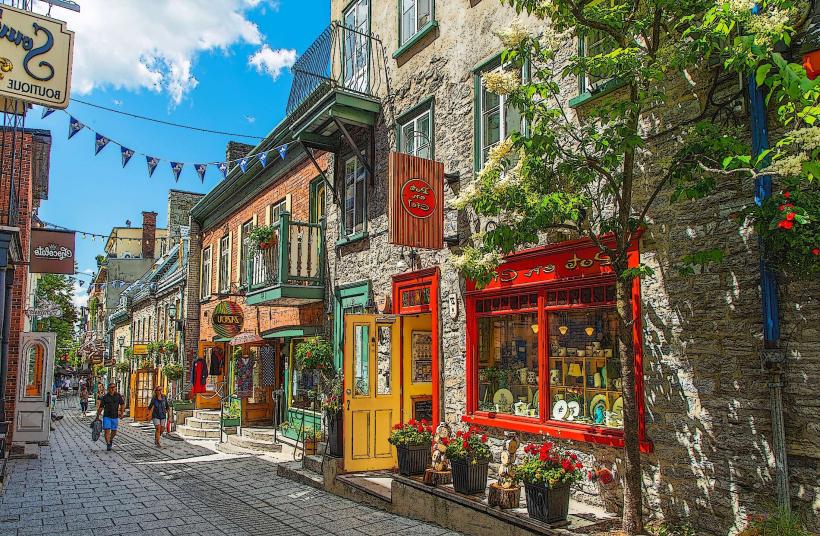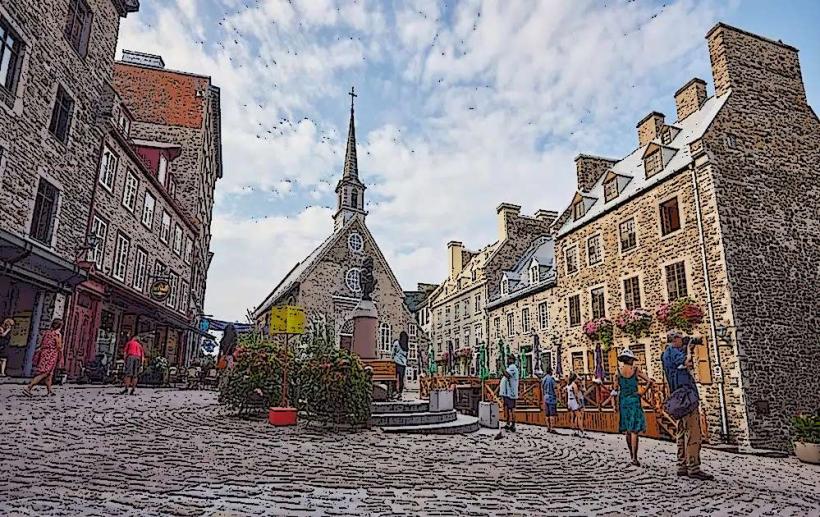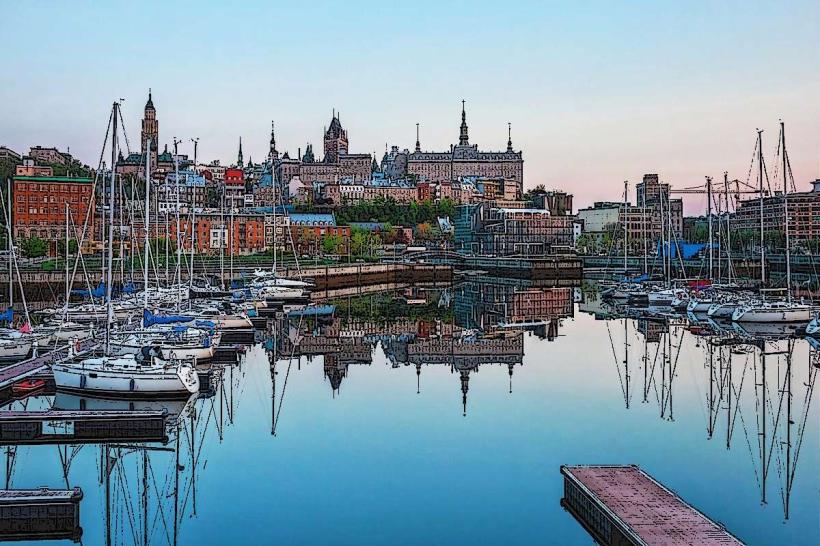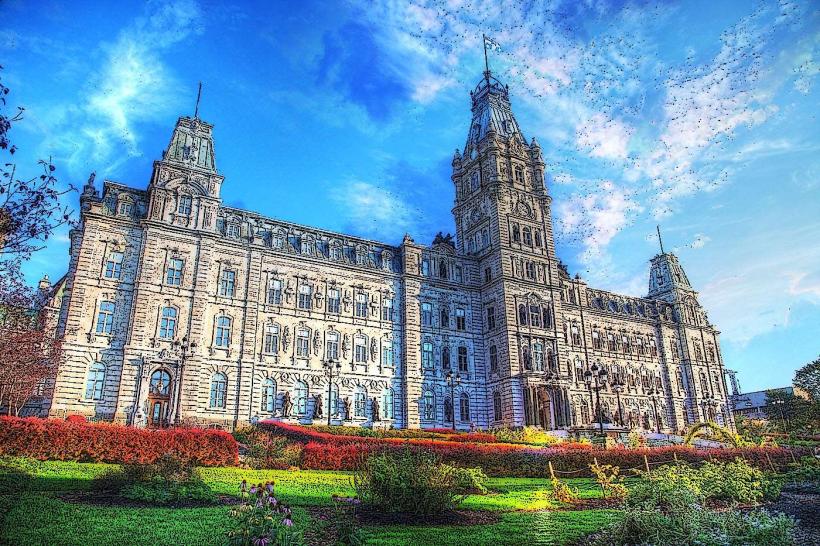Information
Landmark: Plains of AbrahamCity: Quebec City
Country: Canada
Continent: North America
Plains of Abraham, Quebec City, Canada, North America
The Plains of Abraham is a significant urban park located on the western edge of Old Quebec City, Canada.
This expansive historic battlefield now serves as a public green space for recreation and historical commemoration.
Visual Characteristics
The park consists of large, open grassy fields with scattered mature trees, primarily deciduous species like maple and oak. The terrain is gently rolling, with some areas featuring slight inclines. The perimeter is defined by paved walking paths and low stone walls in certain sections. The St. Lawrence River is visible from the southern edge of the park.
Location & Access Logistics
The Plains of Abraham are situated approximately 2 kilometers west of the Parliament Building in Quebec City. Access is primarily via Avenue George VI and Avenue des Braves. Public parking is available at the Musée national des beaux-arts du Québec parking lot and along Avenue George VI. Bus routes 11, 25, and 800 stop near the park entrances.
Historical & Ecological Origin
The site is historically significant as the location of the 1759 Battle of the Plains of Abraham, a pivotal moment in the Seven Years' War. Ecologically, it is a remnant of the natural landscape that existed before extensive urbanization, characterized by temperate deciduous forest and grassland ecosystems.
Key Highlights & Activities
Visitors can walk the historic battleground, explore the Joan of Arc Garden, and visit the Plains of Abraham Museum. Cycling is permitted on designated paths. Picnicking is a common activity in the open fields. Guided historical walking tours are available seasonally.
Infrastructure & Amenities
Restrooms are located within the Plains of Abraham Museum and at the visitor center. Shaded areas are provided by mature trees. Cell phone signal (4G/5G) is generally strong throughout the park. Food vendors are not permanently stationed within the park, but concessions are available at the museum and nearby facilities.
Best Time to Visit
For photography, early morning or late afternoon light offers optimal illumination of the landscape. The months of May through October provide the most pleasant weather for outdoor activities. There are no tide-dependent restrictions for park access.
Facts & Legends
A notable historical oddity is the discovery of numerous artifacts from the 1759 battle during archaeological surveys, including musket balls and fragments of military equipment. A local legend speaks of spectral soldiers reenacting the battle on foggy nights, though this is unsubstantiated.
Nearby Landmarks
- Musée national des beaux-arts du Québec (0.2km East)
- Citadelle of Quebec (1.5km East)
- Old Quebec (2.0km East)
- Parliament Building (2.0km East)
- Port of Quebec (3.5km Southeast)

